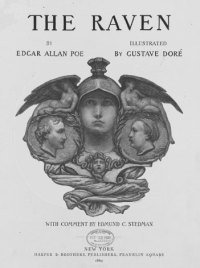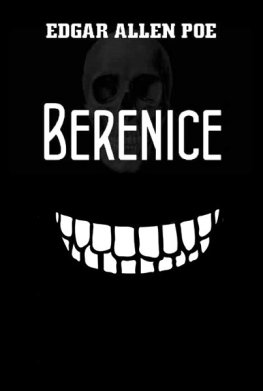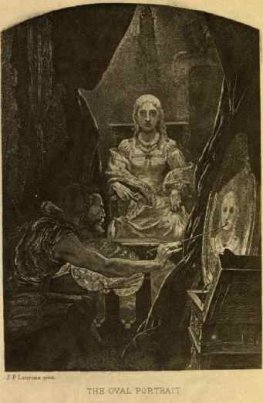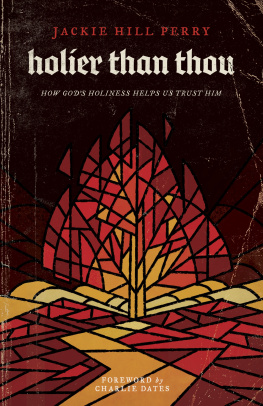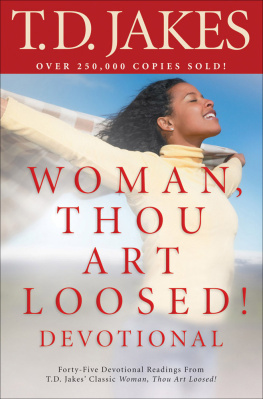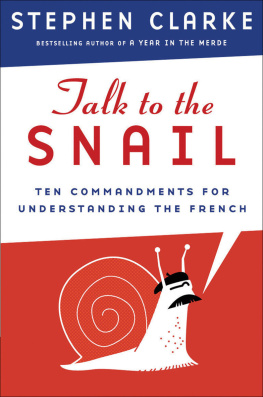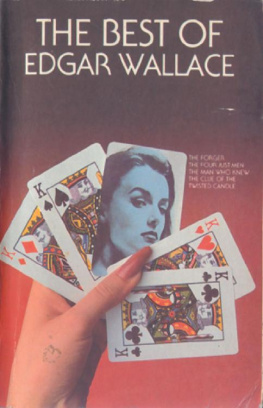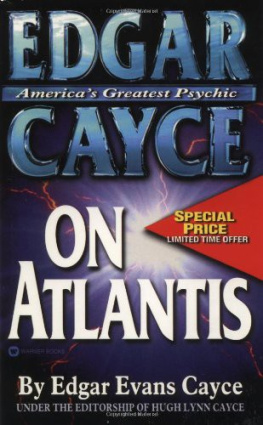Edgar Poe - "Thou Art the Man"
Here you can read online Edgar Poe - "Thou Art the Man" full text of the book (entire story) in english for free. Download pdf and epub, get meaning, cover and reviews about this ebook. genre: Prose / Detective and thriller / Humor. Description of the work, (preface) as well as reviews are available. Best literature library LitArk.com created for fans of good reading and offers a wide selection of genres:
Romance novel
Science fiction
Adventure
Detective
Science
History
Home and family
Prose
Art
Politics
Computer
Non-fiction
Religion
Business
Children
Humor
Choose a favorite category and find really read worthwhile books. Enjoy immersion in the world of imagination, feel the emotions of the characters or learn something new for yourself, make an fascinating discovery.

- Book:"Thou Art the Man"
- Author:
- Genre:
- Rating:4 / 5
- Favourites:Add to favourites
- Your mark:
- 80
- 1
- 2
- 3
- 4
- 5
"Thou Art the Man": summary, description and annotation
We offer to read an annotation, description, summary or preface (depends on what the author of the book ""Thou Art the Man"" wrote himself). If you haven't found the necessary information about the book — write in the comments, we will try to find it.
"Thou Art the Man" — read online for free the complete book (whole text) full work
Below is the text of the book, divided by pages. System saving the place of the last page read, allows you to conveniently read the book ""Thou Art the Man"" online for free, without having to search again every time where you left off. Put a bookmark, and you can go to the page where you finished reading at any time.
Font size:
Interval:
Bookmark:
"Thou Art the Man"
by Edgar Allan Poe
I will now play the Oedipus to the Rattleborough enigma. I will expound to youas I alone canthe secret of the enginery that effected the Rattleborough miraclethe one, the true, the admitted, the undisputed, the indisputable miracle, which put a definite end to infidelity among the Rattleburghers and converted to the orthodoxy of the grandames all the carnal-minded who had ventured to be sceptical before.
This eventwhich I should be sorry to discuss in a tone of unsuitable levityoccurred in the summer of 18. Mr. Barnabas Shuttleworthyone of the wealthiest and most respectable citizens of the boroughhad been missing for several days under circumstances which gave rise to suspicion of foul play. Mr. Shuttleworthy had set out from Rattleborough very early one Saturday morning, on horseback, with the avowed intention of proceeding to the city of, about fifteen miles distant, and of returning the night of the same day. Two hours after his departure, however, his horse returned without him, and without the saddle-bags which had been strapped on his back at starting. The animal was wounded, too, and covered with mud. These circumstances naturally gave rise to much alarm among the friends of the missing man; and when it was found, on Sunday morning, that he had not yet made his appearance, the whole borough arose en masse to go and look for his body.
The foremost and most energetic in instituting this search was the bosom friend of Mr. Shuttleworthya Mr. Charles Goodfellow, or, as he was universally called, "Charley Goodfellow," or "Old Charley Goodfellow." Now, whether it is a marvellous coincidence, or whether it is that the name itself has an imperceptible effect upon the character, I have never yet been able to ascertain; but the fact is unquestionable, that there never yet was any person named Charles who was not an open, manly, honest, good-natured, and frank-hearted fellow, with a rich, clear voice, that did you good to hear it, and an eye that looked you always straight in the face, as much as to say: "I have a clear conscience myself, am afraid of no man, and am altogether above doing a mean action." And thus all the hearty, careless, "walking gentlemen" of the stage are very certain to be called Charles.
Now, "Old Charley Goodfellow," although he had been in Rattleborough not longer than six months or thereabouts, and although nobody knew any thing about him before he came to settle in the neighborhood, had experienced no difficulty in the world in making the acquaintance of all the respectable people in the borough. Not a man of them but would have taken his bare word for a thousand at any moment; and as for the women, there is no saying what they would not have done to oblige him. And all this came of his having been christened Charles, and of his possessing, in consequence, that ingenuous face which is proverbially the very "best letter of recommendation."
I have already said that Mr. Shuttleworthy was one of the most respectable and, undoubtedly, he was the most wealthy man in Rattleborough, while "Old Charley Goodfellow" was upon as intimate terms with him as if he had been his own brother. The two old gentlemen were next-door neighbours, and, although Mr. Shuttleworthy seldom, if ever, visited "Old Charley," and never was known to take a meal in his house, still this did not prevent the two friends from being exceedingly intimate, as I have just observed; for "Old Charley" never let a day pass without stepping in three or four times to see how his neighbour came on, and very often he would stay to breakfast or tea, and almost always to dinner, and then the amount of wine that was made way with by the two cronies at a sitting, it would really be a difficult thing to ascertain. "Old Charleys" favorite beverage was Chateau-Margaux, and it appeared to do Mr. Shuttleworthy's heart good to see the old fellow swallow it, as he did, quart after quart; so that, one day, when the wine was in and the wit as a natural consequence, somewhat out, he said to his crony, as he slapped him upon the back"I tell you what it is, 'Old Charley,' you are, by all odds, the heartiest old fellow I ever came across in all my born days; and, since you love to guzzle the wine at that fashion, I'll be darned if I don't have to make thee a present of a big box of the Chateau-Margaux. Od rot me,"(Mr. Shuttleworthy had a sad habit of swearing, although he seldom went beyond "Od rot me," or "By gosh," or "By the jolly golly,")"Od rot me," says he, "if I don't send an order to town this very afternoon for a double box of the best that can be got, and I'll make ye a present of it, I will! ye needn't say a word nowI will, I tell ye, and there's an end of it; so look out for itit will come to hand some of these fine days, precisely when ye are looking for it the least!" I mention this little bit of liberality on the part of Mr. Shuttleworthy, just by way of showing you how very intimate an understanding existed between the two friends.
Well, on the Sunday morning in question, when it came to be fairly understood that Mr. Shuttleworthy had met with foul play, I never saw any one so profoundly affected as "Old Charley Goodfellow." When he first heard that the horse had come home without his master, and without his master's saddle-bags, and all bloody from a pistol-shot, that had gone clean through and through the poor animal's chest without quite killing him; when he heard all this, he turned as pale as if the missing man had been his own dear brother or father, and shivered and shook all over as if he had had a fit of the ague.
At first he was too much overpowered with grief to be able to do any thing at all, or to concert upon any plan of action; so that for a long time he endeavoured to dissuade Mr. Shuttleworthy's other friends from making a stir about the matter, thinking it best to wait awhilesay for a week or two, or a month, or twoto see if something wouldn't turn up, or if Mr. Shuttleworthy wouldn't come in the natural way, and explain his reasons for sending his horse on before. I dare say you have often observed this disposition to temporize, or to procrastinate, in people who are labouring under any very poignant sorrow. Their powers of mind seem to be rendered torpid, so that they have a horror of any thing like action, and like nothing in the world so well as to lie quietly in bed and "nurse their grief," as the old ladies express itthat is to say, ruminate over the trouble.
The people of Rattleborough had, indeed, so high an opinion of the wisdom and discretion of "Old Charley," that the greater part of them felt disposed to agree with him, and not make a stir in the business "until something should turn up," as the honest old gentleman worded it; and I believe that, after all this would have been the general determination, but for the very suspicious interference of Mr. Shuttleworthy's nephew, a young man of very dissipated habits, and otherwise of rather bad character. This nephew, whose name was Pennifeather, would listen to nothing like reason in the matter of "lying quiet," but insisted upon making immediate search for the "corpse of the murdered man.This was the expression he employed; and Mr. Goodfellow acutely remarked at the time, that it was "a singular expression, to say no more." This remark of 'Old Charley's,' too, had great effect upon the crowd; and one of the party was heard to ask, very impressively, "how it happened that young Mr. Pennifeather was so intimately cognizant of all the circumstances connected with his wealthy uncle's disappearance, as to feel authorized to assert, distinctly and unequivocally, that his uncle was 'a murdered man.'" Hereupon some little squibbing and bickering occurred among various members of the crowd, and especially between "Old Charley" and Mr. Pennifeatheralthough this latter occurrence was, indeed, by no means a novelty, for no good will had subsisted between the parties for the last three or four months; and matters had even gone so far that Mr. Pennifeather had actually knocked down his uncles friend for some alleged excess of liberty that the latter had taken in the uncle's house, of which the nephew was an inmate. Upon this occasion "Old Charley" is said to have behaved with exemplary moderation and Christian charity. He arose from the blow, adjusted his clothes, and made no attempt at retaliation at allmerely muttering a few words about "taking summary vengeance at the first convenient opportunity," a natural and very justifiable ebullition of anger, which meant nothing, however, and, beyond doubt, was no sooner given vent to than forgotten.
Font size:
Interval:
Bookmark:
Similar books «"Thou Art the Man"»
Look at similar books to "Thou Art the Man". We have selected literature similar in name and meaning in the hope of providing readers with more options to find new, interesting, not yet read works.
Discussion, reviews of the book "Thou Art the Man" and just readers' own opinions. Leave your comments, write what you think about the work, its meaning or the main characters. Specify what exactly you liked and what you didn't like, and why you think so.

